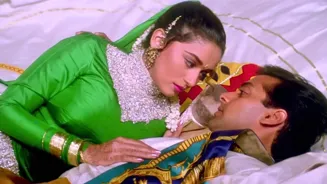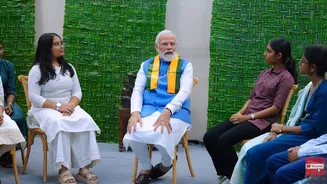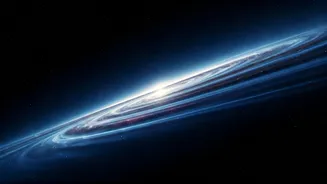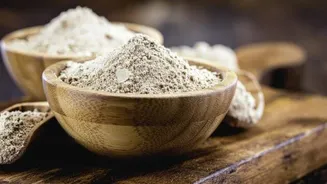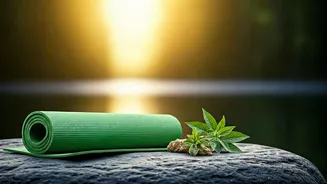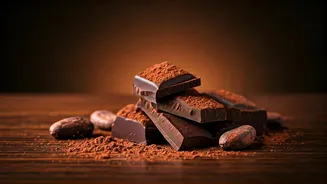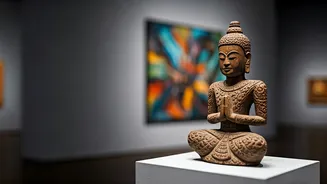
```htmlWhen Sooraj Barjatya’s Hum Aapke Hain Koun…! (HAHK) premiered in cinemas on this day (August 5), 31 years ago in 1994, it transformed the Indian
film industry. Featuring the enchanting Salman Khan and the vibrant Madhuri Dixit, HAHK became a cultural sensation that artfully combined music, tradition, romance, and family values into a four-hour-long celebration of the aspirations of the Indian middle class. Family dramas quickly became the blockbuster hits, and Madhuri Dixit soared to superstardom. Hum Aapke Hain Koun…! showed an entire generation of movie lovers what wholesome cinema truly meant – without a single punch being thrown. Yet, as we look ahead to 2025, three decades after its release, one wonders - what if Hum Aapke Hain Koun...! were produced today? Bollywood has undergone a significant transformation in the past 30 years. Films were still events that brought families together. Streaming platforms had not yet changed the narrative style, and audiences were not prioritizing nuance over nostalgia. In this context, how would the legendary Hum Aapke Hain Koun…! be reimagined today? Also Read: Flashback Films | How Salman Khan, Madhuri Dixit's Hum Aapke Hain Koun..! Subverted Male Patriarchy In Indian Cinema
Would Salman Khan, Madhuri Dixit’s Family Drama Be Condensed?
One of the first aspects that would impact the original HAHK today is its length. Running for 3 hours and 26 minutes, HAHK was essentially a moving wedding album. The typical Bollywood film today lasts between 2 to 2.5 hours, and even that can feel lengthy to viewers accustomed to OTT formats. A 2025 adaptation of HAHK would likely cut down on elaborate musical numbers and family montages. Instead of 14 songs, we might see five or six, including an emotional ballad for the climax. The remaining tracks? Likely reserved for a Spotify exclusive extended soundtrack.
But would that truly capture the magic of Salman Khan and Madhuri Dixit’s Hum Aapke Hain Koun…!?
Hum Aapke Hain Koun…! Could Potentially Be More Intense and Complex
Unlike the straightforward storytelling of the nineties, today’s Indian audiences seek multi-dimensional characters and engaging narratives. If released now, Hum Aapke Hain Koun would likely require heightened dramatic tension, richer character development, and possibly a subplot that tackles modern issues – such as career versus marriage, gender dynamics, or generational clashes.
Madhuri Dixit’s Nisha – a devoted, cheerful sister and sister-in-law – might transform into a career-driven woman grappling with the notion of sacrificing her independence for family duties. Barjatya’s storytelling focused on themes that were prevalent at the time – the ideal bahu, the obedient beti – would that still resonate in a world filled with diverse perspectives?
Salman Khan’s Prem would likely need to evolve beyond a charming slacker with a passion for cricket. In today’s context, he would require a layer of complexity to his character, perhaps as a hesitant entrepreneur stepping into the family business, carrying his own emotional burdens.
Renuka Shahane whose death in the film served as a pivotal plot twist, could become a significant emotional driver that fosters conflict, guilt, and healing within the family, rather than merely a subtle prompt for a sacrificial marriage. The emotional depth of HAHK would likely be amplified to resonate with contemporary viewers.
Also Read: I Loved Saiyaara, But My Oxford Year Broke Me — In A Good Way
Shifting Times And Changing Context
In 1994, when Hum Aapke Hain Koun graced theaters and captured our hearts, the concept of a large joint family living together was aspirational. By 2025, it has become a rarity. A contemporary HAHK would probably center around an extended family gathering for a wedding at a remote haveli, serving more as a symbolic gesture than a grand expression of familial love. The film would maintain its essential Indian essence, but the setting would be tailored for social media – envision drone footage of mehendi ceremonies, bridal dance videos, and coordinated lehenga moments. It would be wedding content for the digital age.
Subversion of Gender Norms
One of the most significant shifts would be in the portrayal of the heroine and the women within the story. In 1994, Nisha was cheerful, kind, and self-sacrificing. In 2025, she is more likely to be assertive. This change could stem from the fact that today’s audience would not accept a storyline where a young woman is expected to marry her deceased sister’s husband out of obligation – especially without thorough discussions around consent, trauma, and personal choice. A modern Nisha would challenge this logic, and the script would ultimately need to honor her autonomy.
Our hero would also need to exhibit a sense of emotional maturity. Prem, who was once celebrated for his vulnerability, would now benefit from being portrayed as conflicted and flawed – a departure from the charming, commitment-free boy-next-door archetype of the nineties.
Hum Aapke Hain Koun…! Cast
This leads us to ponder, would the original cast still be relevant today? Nisha might find a stronger voice in Alia Bhatt or Kiara Advani, who could bring an emotional depth suited to modern times. Vicky Kaushal’s grounded persona could fit Prem well. The supporting cast could feature actors like Neena Gupta, Pankaj Tripathi, and perhaps even a cameo from Madhuri Dixit.
OTT, Theatrical Release, or Both?
Would Hum Aapke Hain Koun…! debut in theaters today? Likely, but it would also require an OTT release shortly thereafter. Family dramas seem to have found a more substantial audience on streaming platforms than in mainstream cinema - consider Gulmohar, The Great Indian Family.
Also Read: Metro… In Dino Is My Silsila, DDLJ Part 2: A Love Letter
Hum Aapke Hain Koun…! Is Likely Timeless
Hum Aapke Hain Koun...! was, arguably, a product of its era – a cinematic tribute to family, love, and tradition that resonated through generations. A contemporary Hum Aapke Hain Koun would undoubtedly be more polished, intelligent, and emotionally nuanced, yet its essence would remain unchanged.
To be frank, at its heart, HAHK is not merely about weddings or songs; it is a heartfelt tribute wrapped in joy, family, and the belief that goodness prevails. In 2025, that message still resonates. HAHK is timeless in its charm, a melody of familiarity that envelops you in comfort, akin to your naani’s embrace or the delightful combination of chocolate, lime juice, ice cream, and toffees. Rather than remaking or reimagining, if Hum Aapke Hain Koun were to be re-released today, it would likely once again become the event film of the year.
```
